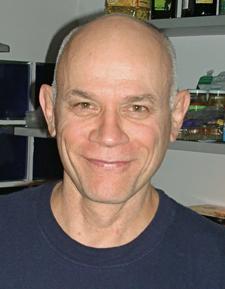As executive director of the International Lesbian and Gay Association (ILGA), Trevor Cook knows firsthand the discrimination that sexual minorities face throughout the world.
Cook recounts how in 2007, during a trip to Lithuania for his first European ILGA conference, a few homophobic residents picketed the event.
“The mayor of Lithuania banned a march and even banned displaying the rainbow flag outside of the conference hotel site,” he says of his “initiation” tour into the ILGA. “A smoke bomb was exploded outside the hotel during the first night. Welcome to ILGA!”
But Cook is undeterred. He believes that one day, an international standard of human rights for queers can be achieved.
Cook’s path to the ILGA began in the prairies of southern Alberta. While attending the University of Lethbridge, Cook began to pay attention to the atrocities of the Vietnam War and the invasion of Czechoslovakia. These events, and some encouragement from an inspiring professor, prompted him to explore the world with the goal of helping people.
Cook’s résumé reads like the international departure board at London’s Heathrow airport. His work with Canadian University Service Overseas (CUSO) and Development and Peace has taken him to Ghana, Nigeria, Botswana and the eastern Caribbean, among other places.
Despite success with CUSO and Development and Peace, Cook felt there was a gap in his career when it came to queer rights. Having sued and won a case against his insurance company to extend his benefits to his partner, he knew first hand what injustice felt like. Cook decided to take his advocacy to the next level and join the ILGA as executive director in Brussels in 2007.
At just over a year on the job, Cook has big goals for the organization. He wants to make it “an efficient and well-oiled association where most of the focus would be on facilitating the important political, educational and other work that needs to be done.”
As an association of close to 700 groups from around the world, ILGA has plenty of work ahead. “Many of them [are] at the initial stages of coming together and working for recognition and rights, many of them [are] also facing enormous legal, political and social obstacles,” he says of the member groups.
Acting as a hub for activist groups, the ILGA considers itself to be the “only international non-profit and non-governmental community-based federation focussed on presenting discrimination on grounds of sexual orientation as a global issue.” In 1990, it successfully lobbied the World Health Organization to eliminate homosexuality from its international list of diseases. One year later, it pressured Amnesty International to recognize imprisoned gays and lesbian as “prisoners of conscience.”
But some of ILGA’s most important achievements have come in the past few years. In 2006, ILGA worked with 29 international human rights experts to create and launch the Yogyakarta principles. These principals were created as a legal standard for human rights issues that involve sexual orientation and gender identity.
The ILGA, having persisted at obtaining a presence at the United Nations since 1993, was recently able to make inroads into the powerful organization. “In December 2006, 54 UN member states supported the issues of sexual orientation and gender identity by signing the Norwegian Statement in the UN Human Rights Council,” says Cook.
ILGA has actively campaigned for regional queer groups to obtain consultative status within the United Nations Economic and Social Council (ECOSOC). This status would enable member groups to paint a picture of the realities of state-sanctioned homophobia. Since 2006, five member organizations and regions of ILGA obtained this status with an additional five organizations now in the application process.
The recent successes of ILGA are just the beginning for Cook, who remains humble about his roots. No matter how far his position takes him around the world, Cook always returns to southern Alberta to visit family and friends. In May, he was in Lethbridge to accept an honourary alumni award from the University of Lethbridge Alumni Association for his activism.
While visiting from Brussels he said he was thrilled to see how the Lethbridge queer community has become larger and more open, but he stressed his disappointment that many rights in Alberta have been won through the courts and not through proactive measures by the government.
“It is disappointing, and in fact intolerable, that in 2008, not only the government of Alberta but many of the province’s institutions, such as the media, organized religion, professional and cultural associations promote or even accept that an environment exists for prejudice and discrimination to reign,” he says.
Cook warns against complacency with gay rights in Canada. He calls on queers to get involved, by joining groups working at a local or international level.
“The younger generation obviously might have a tendency to take for granted the relatively high levels of acceptance and comfort that they may have,” he says. “I keep wondering what Harper would do if he had a majority. I think it is pretty much guaranteed that he would directly or indirectly roll back our rights across Canada and create conditions whereby provinces like Alberta could also remove rights and withdraw the gains that have been made.”

 Why you can trust Xtra
Why you can trust Xtra


